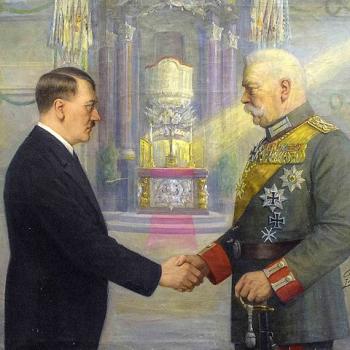Hemingway:Yes. He shares Sayyid Qutb's single-minded focus on the threat of outside influences on his tribe and its customs. He defends violence against innocents in a manner that actually reminded me quite a bit of Osama bin Laden and Al-Qaeda. But unlike those Muslim leaders, Breivik seems to have no following. In that regard, he's more like Ted Kaczynski, the terrorist whose manifesto he plagiarized almost word-for-word. Kaczynski's manifesto was also very cogent and internally consistent, drew from a variety of philosophers and political sources, and justified violence in advocacy against modernism.
Sharlet:Not with Qutb. Qutb was a more traditional theorist, and smarter. That's absolutely no endorsement of his ultimately stupid and murderous ideas, just an observation of fact. Breivik is more of a "literary" writer—his manifesto revolves around the creation of a character, himself, and is "wittier" in the sense of deliberately veering between "high culture" and "low," his idea of humor and everyone's idea of bombast. With bin Laden? Sure—they're both terrorists committed to defending a faith with which they have a limited and rigid relationship, in pursuit of a theocracy they imagine existed in the past.
What do we need to know about Breivik's particular cultural context—his Norwegian context—in order to make sense of his view of religion?
Hemingway:It is a bit of a shame that Americans have tried to make this situation so much about our particular political and religious context. The political dynamic and social mores in Norway should probably be discussed more to help us understand these differences. As for religion in Norway, obviously we should remember that Norway has a state church with a much less vibrant or engaged religious marketplace than we have in the States.
Sharlet:The only honest answer for an American is "more than we know so far." I've reported a bit on Norwegian Christian conservatism in the past, working with Norwegian reporter Tore Gjerstadt to help him in his series of investigative reports on the influence of a much more establishmentarian Christian conservative group, the Family, for a national paper there called Dagbladet. I learned just enough to know that the context is deeply complex and will take a lot more research before I can say anything conclusive about it.
There have been attempts to link Breivik to American conservative commentators, and Breivik was clearly reading those commentators. How do you understand the relationship between Breivik and the U.S. commentariat?
Hemingway:The relationship between American writers who warn of the threat of Islamic terrorism and Breivik seems to be that Breivik read them extensively. He took information from a variety of media outlets and footnotes are used throughout the manifesto linking back to extremist blogs, conservative blogs, and mainstream media outlets such as the Washington Post. He appears to have been a voracious consumer of information and was particularly interested in Islam, Islamic terrorism, and multiculturalism. Much of the manifesto also responds to these blogs and their writers as he castigates them for opposing the use of terror or violence as a means to achieve their objectives.
Sharlet:I think you have to take that case by case, with the understanding, sadly and bizarrely lacking in conservative defensiveness about this, that words and bullets are different things. Breivik pulled the trigger, and nobody told him to do it; none of these writers are responsible for Breivik's actions, and I'll defend to the end their right to speak their minds. I wrote critically about Ted Haggard's New Life Church in Harper's magazine in 2005, and NBC's Tom Brokaw gave the church some critical attention. We're not responsible for the 2007 attack on the church by an angry gunman. (There was no evidence that I was aware of that he read or was interested in those kind of critiques; but had he been, I'd say the same.)
But if I'd written along the lines of Robert Spencer, a popular anti-Islamic writer Breivik quotes extensively, I think I'd be asking myself hard questions about the implications of my rhetoric. Spencer and many of the other writers Breivik quotes at great length characterize the struggle with Islam—and feminism and "cultural Marxism"—as an us or them fight for our very survival. They don't advocate individual violence (they do advocate violence in the support for wars as they see as with Islam). But they create a narrative that walks up to the edge.
Take the example of the Belgian rightist MP interviewed on BBC the other day. He was horrified by Breivik's actions. And, unlike some American conservatives like Pat Buchanan and Bryan Fischer, horrified by the manifesto. He wondered why Breivik had sent it to him. He said he was absolutely committed to nonviolence. Then the BBC interviewer noted that the MP's rightist party had distributed small knives to some of its supporters. The MP was flummoxed at what that had to do with violence. They were, he claimed, nonviolent knives. I see the most extreme rhetoric out there as something like that. Robert Spencer and Pamela Geller and Joseph Farah and Walid Shoebat are laying the rhetorical equivalent of nonviolent knives on the table. Should we be surprised that someone discovered that such knives have other uses?
M.Z. Hemingway is an editor at Ricochet and a contributor to Get Religion.
Jeff Sharlet is the bestselling author of The Family and C Street and Mellon assistant professor of English at Dartmouth College. His most recent book is Sweet Heaven When I Die: Faith, Faithlessness, and the Country In Between.





